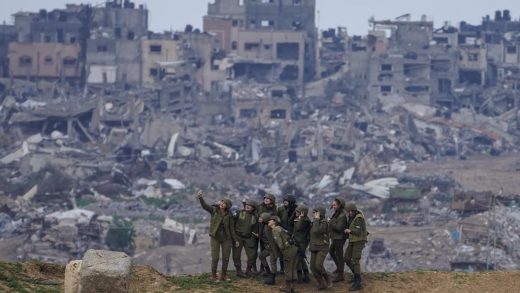
DES MOINES, Iowa (AP) — About a hundred Iowa National Guard troops will be sent to the U.S.-Mexico border for the month of August in a federally funded operation, Republican Gov. Kim Reynolds announced Wednesday.
The move reflects a broader trend across the country of Republican governors joining forces with Texas Gov. Greg Abbott to counter President Joe Biden’s immigration policies, which they say have created a crisis at the border.
“Since the administration refuses to invest in securing the border and protecting its citizens, Texas has asked other states to help, and Iowa is ready and willing to assist,” Reynolds said in a statement.

The Biden administration sent 1,500 active-duty troops for a 90-day deployment in May, amid concerns that the end of asylum restrictions linked to the pandemic would lead to an increase in illegal border crossings. Even when the restrictions were in place, a record number of people were crossing the border.
Instead, numbers have fallen, and 1,100 troops will conclude their 90-day mission by Aug. 8, a defense official said on the condition of anonymity in order to discuss details ahead of an announcement. The remaining 400 will be extended through August 31.
An additional 2,300 National Guard troops remain at the border under federal orders.
This is the third time since 2020 that Reynolds is sending troops to the country’s southern border. Officers with the state’s Department of Public Safety will follow National Guard troops at the end of August for the month of September. The governor’s office indicated in May, when the deployment was first announced, that about 30 public safety officers would be sent.
Iowa’s neighbor, Nebraska, will also dispatch about 60 troops to the southern border in August, Republican Gov. Jim Pillen announced Monday. Governors in Florida, Virginia and South Carolina, among other states, have made similar deployments for Operation Lone Star, a multibillion dollar operation that is distinct from federal efforts, and whose lack of transparency and metrics have drawn questions.
___
Associated Press writers Tara Copp and Rebecca Santana contributed to this story from Washington.


